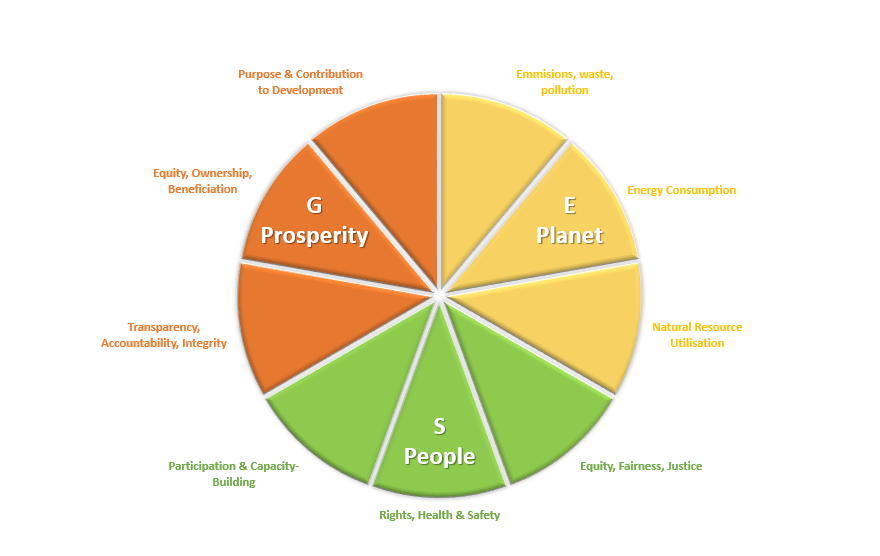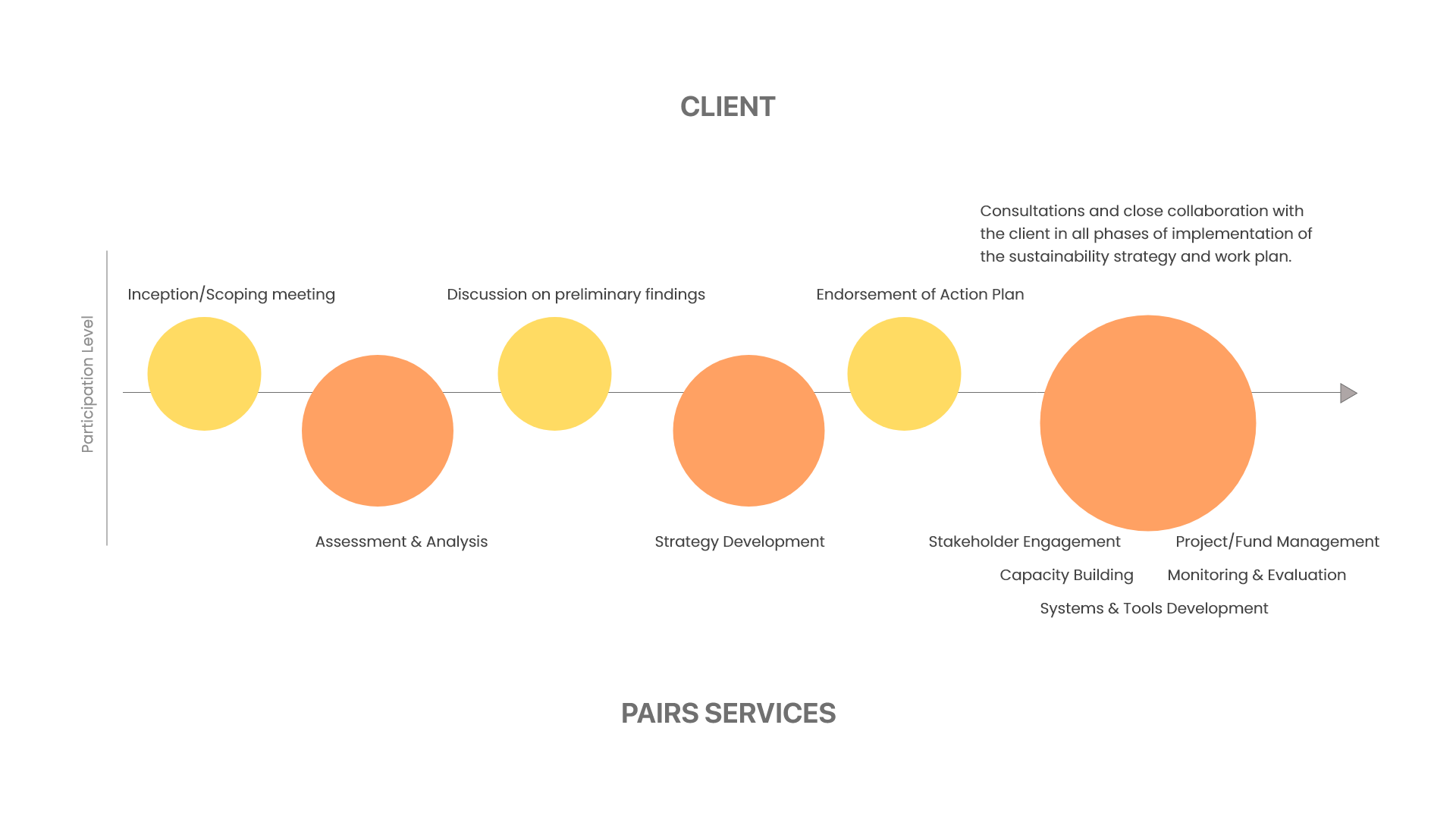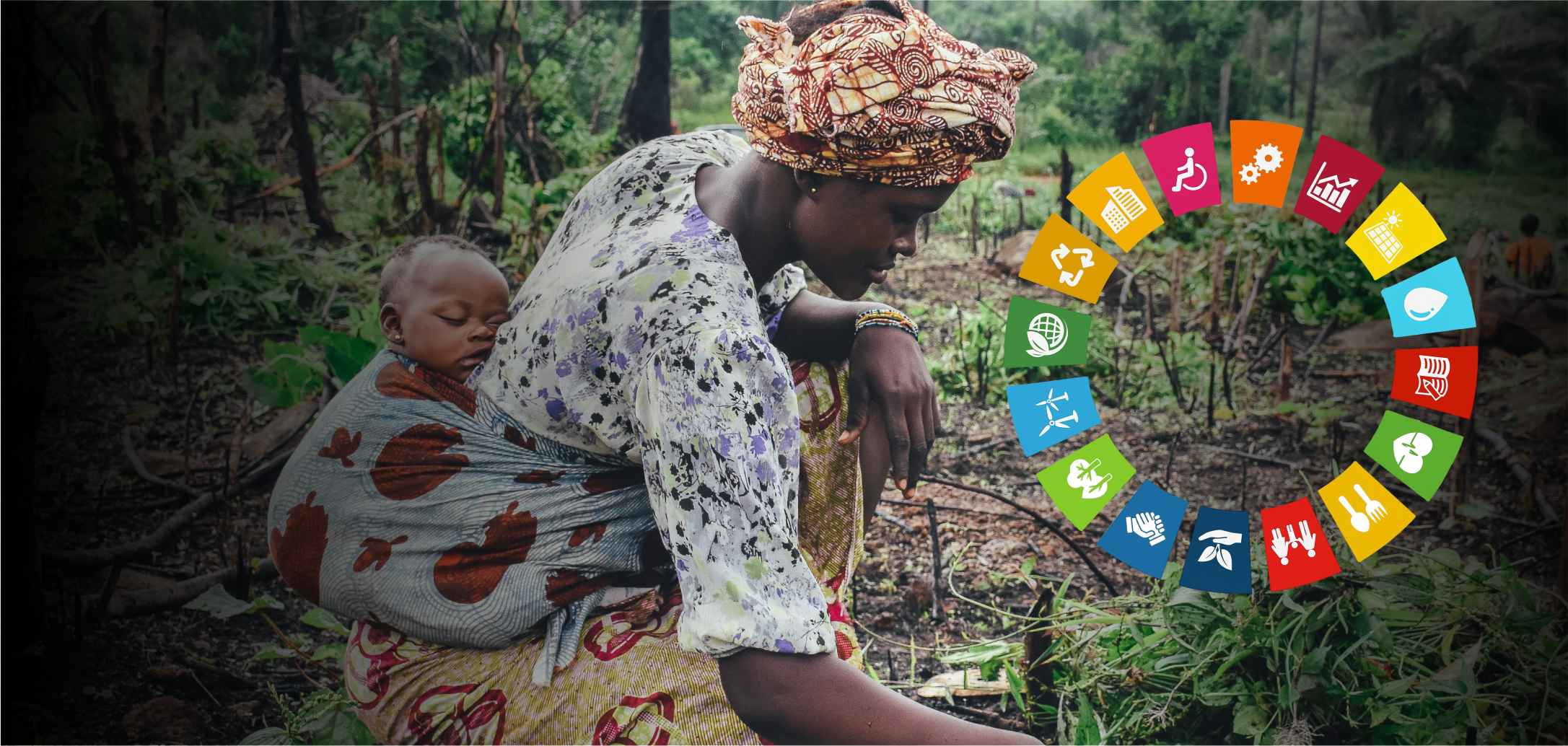
Systemic audit and analytics on the contribution of business to sustainable development
Use PAIRS services to ensure your
- Compliance to law and policy
- License to operate from government and community
- Reputation, marketing and public image
- Creating shared value and broad-based prosperity
The PAIRS Framework

International Standards of Reference
- UN – SDG Impact, Global Compact
- Principles of Responsible Investing (PRI)
- UNEP finance initiative / sustainable stock exchanges
- OECD evaluation criteria & standards
- WEF metrics for stakeholder capitalism
- ILO Decent Work indicators
- IFC Operating Principles for Impact Management (128 DFIs signed up)
- Impact Management & Measurement (IMM) Systems (IRIS+, GIIRS,
B-Lab, IMP, GRI) - FTSE/JSE Russell Responsible Investing Index
- Climate Pledge / Climate Disclosure initiatives





Key characteristics of the assessment tool
- Independent verification – more objective (ESG audit)
- Scientific, empirical, rigorous, systematic
- Strong gender & social justice lens
- Country-specific development priorities & policy frameworks

Firm/Enterprise

Fund/Investment

Two Sides of the Coin
Reduce the Harm
- Compliance
- Materialize/monetize consequences (fines, legal costs, media & reputational damage, stock drops) – based on former cases in SA & international cases
Increase the good
- Value beyond compliance / additionality
- Focus on the positive
- Incentivize/compete/encourage on good behavior
Measuring impact on socio-economic development
| Examples Key Performance Indicators | Inputs | Outputs | Outcome / Impact |
|---|---|---|---|
| Alignment to development priorities (SDGs, A2063, NDP, PGRS, IDP) | Spending | goal specific | goal specific |
| Employment generation (esp. youth, women, disabled, disadvantaged, diversity) | Spending | # quality jobs (permanent / decent wage) created | increase in household income (esp. poor) |
| Skills development & knowledge transfer (esp. youth, women, disadvantaged) | Spending | # people trained | knowledge acquired and behavior change |
| SME development (local, women, youth, disadvantaged) | Spending | # SME supported | # SME sustained (stable institution, access to finance, profitable) |
| Provision of social services / CSI (ie. education, health, social welfare) | Spending | project specific | project specific |
| Provision of public infrastructure (ie. Energy, ICT, Transport, Water, Parks) | Spending | project specific | number of people with access to e.g. electricity, internet, etc. |
| Contribution to fiscus and public revenue (taxes, levies, license fees) | Total amount & percentage of profit | ||
| Provision of services, products and technology (esp. to poor and disadvantaged) | Price & quality (compared to market) | ||
| Other specific development areas of interest or priority | Spending | area specific | area specific |
Client Engagement and Capacity Building Approach

